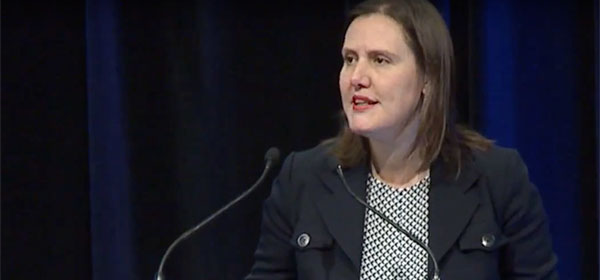Underperforming super funds and multiple accounts are costing members $3.9 billion every year, according to a draft report by the Productivity Commission into Australia’s $2.6 trillion superannuation system.
The report, Superannuation: Assessing Efficiency and Competitiveness, released today, highlights a “massive rip-off”, according to Financial Services Minister Kelly O’Dwyer.
It says that by eliminating multiple accounts and switching to a better-performing fund, a 55-year-old could gain an extra $61,000 by retirement age and that new member could add an additional $407,000 to their retirement nest egg by 2064.
It has found that one-third of accounts are unintended multiple accounts and that these fees erode members’ balances by $2.6 billion a year.
It also says that in the past 10 years, one in four funds have “persistently” fallen short of the mark, potentially costing a new member $375,000 by retirement age.
The report makes two key recommendations:
- the creation of a “best in show” list of top-performing funds from which employees can make an informed decision when selecting a fund.
- that employers lose their current obligation to choose a default fund for their employees’ compulsory contributions given a potential conflict of interest.
It also questions the long-held claim that industry funds outperform retail funds.
Deputy chair of the Productivity Commission Karen Chester said the system developed in 1992 by then Labor Prime Minister Paul Keating was “outdated” and had “structural flaws”.
“We’re 27 years down the track from when compulsory super was introduced in Australia so it’s time to modernise and time to get rid of these two fundamental flaws that are causing members great harm,” she told the ABC’s AM program.
“While the system works reasonably well for some members, it has become an unlucky lottery that sets the odds against many members.
“The impact is highly regressive. It causes great harm to young people, workers on low incomes and workers in and out of the workforce. These are awkward truths that the industry needs to address.”
She said that given longer life expectancy, retirement funds needed to be as effective and efficient as possible to put the least pressure possible on the Aged Pension.
“The main objective of the super system in accumulation is to make sure that members retire with the biggest balance possible,” Ms Chester said.
“But if those balances are being eroded by these two problems – unintended multiple products and underperforming products and funds – then they’re not going to retire with the biggest possible balances.”
The report also highlights the issue of insurance products that accompany super accounts, with Ms Chester saying that many members did not know they had insurance.
“Not all members get value out of insurance in superannuation,” she said. “Many see their retirement balances eroded – often by $50,000 – by duplicate, unsuitable or even zombie policies.”
Ms O’Dwyer said: “Young people and low-income workers are being ripped off. It must stop. This is an interim report but we are encouraged by the proposals, which go a long way to solving a lot of the issues.
“I simply want to see low fees, good governance and funds working for the members, whether they be retail or industry.”
Ms O’Dwyer said the Government put a number of measures on the table on the Federal Budget, including capping fees and removing exit fees.
Submissions and comments on the draft report are being sought by 13 July via the inquiry website.
Do you know what fees your super fund charges? Is your fund a top performer? Do you know if you have insurance?
Related articles:
Super changes from 1 July
Funds return to riches
Top-performing funds

